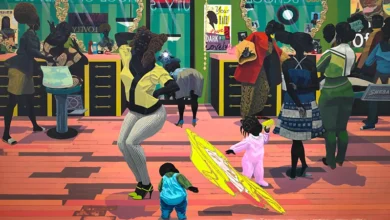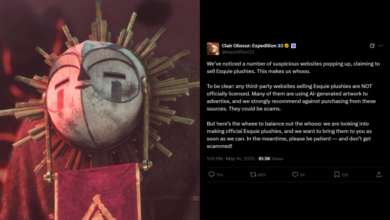British theatres bring array of new shows, but are ‘in a precarious position’
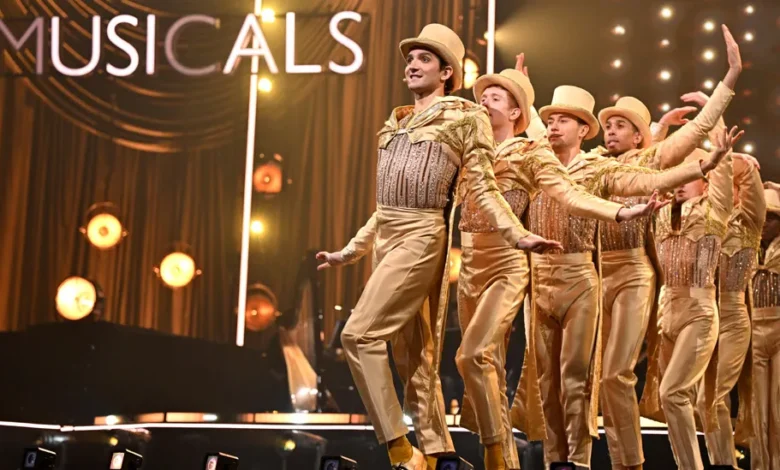
On Saturday night, BBC One viewers will see stars from some of the West End’s biggest shows celebrate the magic of British theatre.
The National Lottery’s Big Night of Musicals will showcase one vibrant and thriving side of it.
However, behind the sequins and bright lights, a very different story is being told about the state of the wider industry.
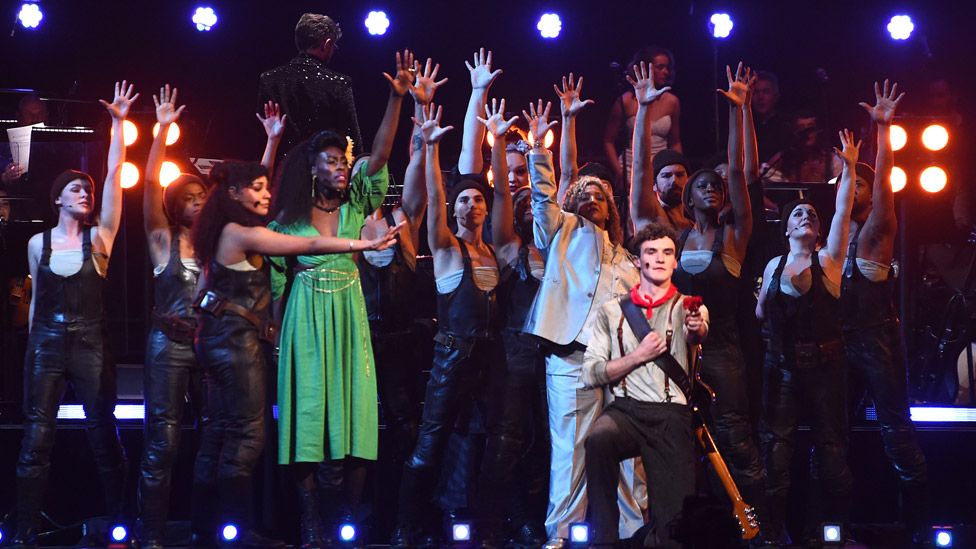
British theatre is “dying” and “in a dreadful state”, its demise hastened by the dominance of TV and streaming, The Times arts columnist Richard Morrison wrote last week.
“Those theatres not facing closure because of local authority budget cuts, or cracks in their concrete, are struggling to attract audiences for anything except musicals and famous plays featuring famous actors.”
In The Stage, Lyn Gardner recently wrote that the industry “thrives on the illusion of confidence” – but it may be “time to raise the alarm of what is at stake and the reality facing many venues”, particularly outside London.
Words like “challenging”, “volatile” and “unsustainable” feature in some theatres’ annual accounts, which have been filed in recent weeks. Some have changed their programming to do more “popular, familiar, crowd-pleasing work”.
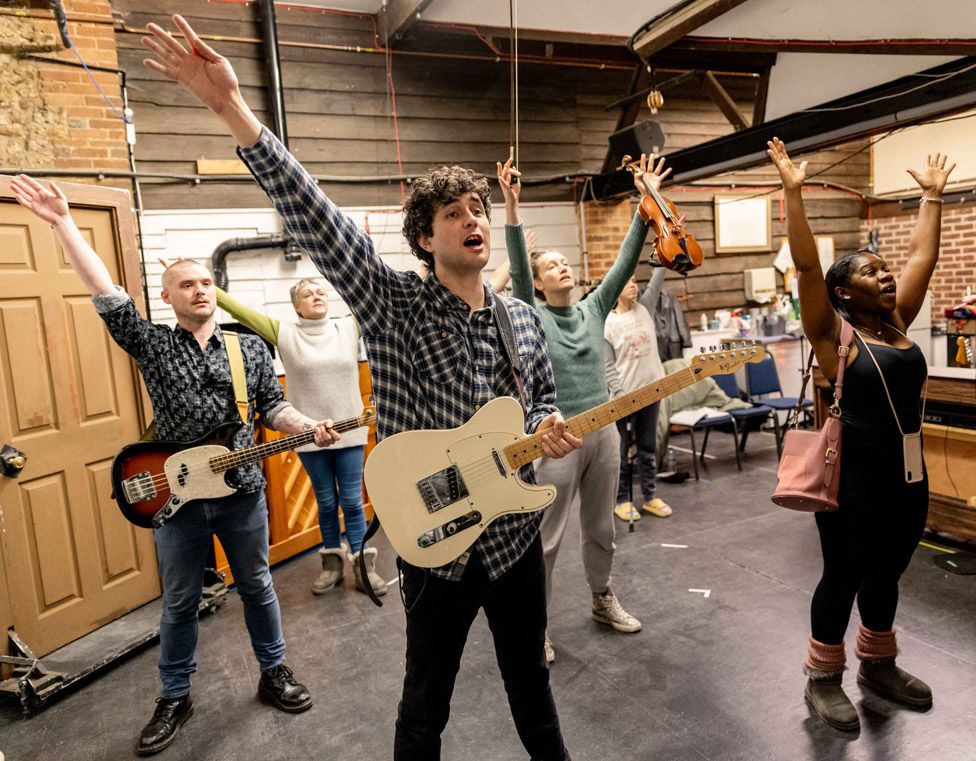
Like most walks of life, arts venues have been hit by inflation and the cost-of-living crisis, and are still dealing with the fallout from Covid. High ticket prices put many people off.
Some councils, like Birmingham, Nottingham, Bristol, Somerset and Suffolk have proposed to slash or remove arts funding as they navigate their own financial woes.
While inflation has risen, Arts Council England grants for many have barely increased for a decade. National Theatre Wales has controversially lost its subsidy from the Arts Council of Wales. Creative Scotland has received a big cut from the Scottish government.
“I think it’s fair to say that theatres right across the country are in financial difficulty,” Tamara Harvey, the Royal Shakespeare Company’s new joint artistic director, recently said.
Venues have two choices, she said. “Either you hibernate and hunker down and cut your activity, or you are ambitious and try and drive forward and do more, whilst also being as responsible about costs as you possibly can be. We’re doing the latter.”
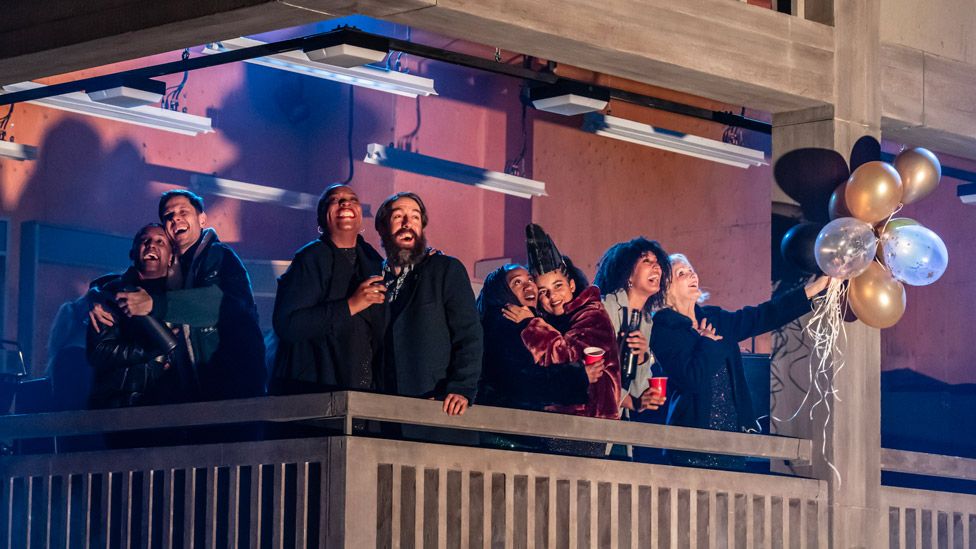
There are financial challenges, but the suggestion that theatre is dying “couldn’t be further from the truth”, according to Stephanie Sirr, chief executive of the Nottingham Playhouse and joint president of UK Theatre.
Audiences have returned since the pandemic, she says, and adds: “Ticket income has gone up, but because costs have gone up, you are in a more precarious position.
“So in theory, this is a golden age for theatre. People love going to the theatre. They do buy tickets to new writing. So there’s lots of really interesting, relevant new work being made every year. That all feeds into the West End, where the tills are also ringing. So that’s all good.
“The two problems are – the cost of doing quality work has gone up massively, and local authority funding is disappearing.”
A glance at the listings demonstrates that lots of exciting new plays and musicals are being made, although the “illusion of confidence” being shown on stage may still not fully reflect the reality off it.
27 shows opening in February

- A Song For Ella Grey. David Almond’s young adult novel, a modern retelling of the Orpheus myth, is brought to the stage by Pilot Theatre. Northern Stage, Newcastle, 1-15 Feb, then touring.
- Wilko. A musical, not set in the defunct High Street chain, but about the life of Dr Feelgood guitarist Wilko Johnson. Queens Theatre, Hornchurch, 1-24 Feb.
- Blue Beard. Outraged by murders of women in the news, director Emma Rice has reworked the French folk tale about a wealthy man who kills his wives. Bath Theatre Royal, 2-10 Feb, then touring.
- Seconds Away! A first “staged reading” of a play by renowned screenwriter Ian La Frenais and actor Jimmy Nail, who stars as a down-and-out boxing champion. Live Theatre, Newcastle, 6-17 Feb.
- Sherlock Holmes and the Poison Wood. This rock musical puts a modern spin on the iconic detective and the area’s history of environmental protest. Watermill Theatre, Newbury, 2 Feb-16 March.
- The Boy at the Back of the Class. Onjali Q Rauf’s book about a nine-year-old refugee is adapted by Front Row presenter Nick Ahad. Rose Theatre, Kingston upon Thames, 3-22 Feb, then touring.
- An Enemy of the People. Matt Smith stars as Ibsen’s play about power and corruption is brought bang up to date. Duke of York’s Theatre, London. 6 Feb-6 April.
- The Picture of Dorian Gray. Succession’s Sarah Snook tackles all 26 roles in Oscar Wilde’s cautionary tale about beauty and youth. Theatre Royal Haymarket, London. 6 Feb-11 May.
- Double Feature. Gladiator and Skyfall writer John Logan premieres a new play peering behind the silver screen of the 1960s. Hampstead Theatre, London, 8 Feb-16 March.
- Standing at the Sky’s Edge. The acclaimed musical about the inhabitants of a Sheffield flat, co-written by Richard Hawley, moves to the West End. Gillian Lynne Theatre, London. 8 Feb-3 August.
- A Leap in the Dark. A “comedy caper” about the birth of radio drama marks the 100th anniversary of the BBC’s first radio play. New Vic, Newcastle-under-Lyme, 9 Feb-2 March.
- Shed: Exploded View. Phoebe Eclair-Powell’s story of the violence lurking in three relationships won the UK’s biggest playwriting prize in 2019. Royal Exchange, Manchester, 9 Feb-2 March.
- The Gap. Denise Welch and Matthew Kelly play friends reunited in a new comedy by big-hearted playwright Jim Cartwright. Hope Mill Theatre, Manchester, 9 Feb-9 March.
- Haunted Scouse. The latest riotous Liverpool-set show from the city’s crowd-pleasing Royal Court. 9 Feb-9 March.
- Two Sisters. Emma and Amy attempt to recapture happy times at their childhood holiday park in David Greig’s new drama. Royal Lyceum Theatre, Edinburgh. 10 Feb-2 March.
- Hadestown. Anais Mitchell’s folk opera won eight Tony Awards on Broadway and now comes to the West End. Lyric Theatre, London, 10 Feb-4 August.
- Frankenstein. Imitating the Dog bring their innovative, eye-catching use of multimedia to Mary Shelley’s story. Leeds Playhouse, 15-24 Feb, then touring.
- Feral Monster. The highs and lows of teenage years become an exuberant new musical from under-threat National Theatre Wales. Sherman Theatre, Cardiff, 15-24 Feb, then touring.
- One Last Push. Writer Chris Chibnall’s first project since handing over the reins of Doctor Who is a comedy about pregnancy and birth. Salisbury Playhouse, 15 Feb-9 March.
- Minority Report. Actor/writer David Haig adapts Philip K Dick’s sci-fi story, with Jodie McNee in the Tom Cruise role. Nottingham Playhouse, 16 Feb-9 March, then Birmingham and London.
- A View From the Bridge. Dominic West and Callum Scott Howells go to 1950s New York via Bath Theatre Royal, 16 Feb-16 March.
- Cable Street. The 1936 anti-fascist street battle in east London gets the musical treatment. Southwark Playhouse, 16 Feb-16 March.
- The Human Body. Set in 1948, Lucy Kirkwood’s new play stars Keeley Hawes as a GP grappling with the birth of the NHS and domestic dramas. Donmar Warehouse, London. 16 Feb-13 April.
- Bhangra Nation. A vibrant new musical set in the world of bhangra dancing competitions. Birmingham Rep, 17 Feb-16 March.
- Nye. Michael Sheen plays another politician, this time the NHS’s founding father Nye Bevan. National Theatre, 24 Feb-11 May, then to Cardiff.
- Lines. Stories from five prisons around the world come together to examine post-colonial life. Sheffield Crucible, 28 Feb-9 March.
- Starter for Ten. David Nicholls’ novel about students trying to get on to University Challenge was also a film starring Benedict Cumberbatch. Bristol Old Vic, 29 Feb-30 March.




